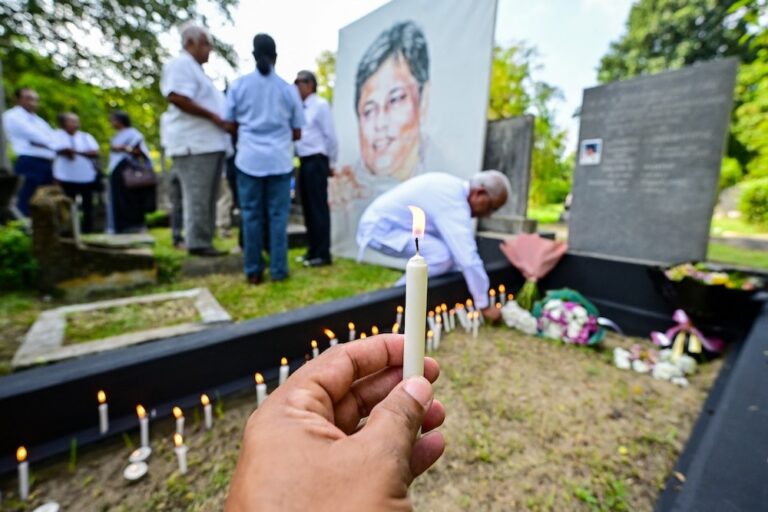(FMM/IFEX) – The following is a joint statement by FMM and eight other organisations on the proposed National Media Policy: Statement by Nine Media Organisations on the proposed National Media Policy We, the undersigned organisations, welcome the government’s recently announced initiative to establish enabling structures and a positive culture for media freedom and social responsibility. […]
(FMM/IFEX) – The following is a joint statement by FMM and eight other organisations on the proposed National Media Policy:
Statement by Nine Media Organisations on the proposed National Media Policy
We, the undersigned organisations, welcome the government’s recently announced initiative to establish enabling structures and a positive culture for media freedom and social responsibility.
It is our collective opinion that the responsibility of the State is to ensure an environment where freedom of expression is guaranteed. In order to achieve this, we feel it is the duty of the State to create the proper legal framework that guarantees these rights and also safeguards the people’s right to information.
For their part, media should be bound by codes of practice which will ensure the ethical and professional conduct of all media practitioners. These codes are best formulated and agreed upon by media practitioners themselves. Regional and international experience has taught us that these codes are best practiced when they are self-regulated.
Attempts by governments to impose ethical guidelines on the media in a democratic state go against international practice and the very spirit of freedom of expression. We, the undersigned, will strongly oppose such attempts to bring in guidelines which are backed by punitive laws, under any pretext.
This is also the time to reiterate that we oppose the imposition of strictures on the media through the Regulation Emergency (Prevention and Prohibition of Terrorism and specified Terrorist Activities) Regulations No. 07, issued on 6 December 2006.
In the past decade or so there has been an impressive body of work done in Sri Lanka recommending positive changes to the overall media landscape. We call upon the government to refer to recommendations contained in these reports.
Some of the documents containing these recommendations are as follows:
1. The R.K.W. Gunasekara report on media law reform in Sri Lanka (1995)
2. The Sidath Sri Nandalochana Committee on broad basing ANCL
3. The Colombo Declaration on Media Freedom and Social Responsibility of 1998 signed by the Newspaper Society of Sri Lanka, the Editors’ Guild of Sri Lanka and the Free Media Movement.
4. The media charter of 2005 of SLWJA, FMM. FMETU, SLTMA. SLMMF.
Therefore, we propose to the government that it immediately implement the following recommendations, to create the proper environment so that a free, responsible and vibrant media that will serve the people will flourish in Sri Lanka:
1. Enact the proposed Right to Information Bill which has been approved by Cabinet and drafted in consultation with the media.
2. Amend the existing laws to transform the state-owned electronic media – Rupavahini, SLBC, ITN and Lakhanda – into genuinely independent Public Service Broadcasters.
3. Broad base the ownership of the Associated Newspapers of Ceylon Ltd., in accordance with the spirit with which it was vested in the state and ensure its editorial independence.
4. Revive the All Party Lakshman Kadirgamar Parliamentary Select Committee with a view to bringing in a Contempt of Court Act on the lines of a similar Law in the United Kingdom and India.
5. Amend the Parliamentary (Powers and Privileges) Act as asked for in the Colombo Declaration.
(signed)
Free Media Movement
The Editors’ Guild of Sri Lanka
The Newspaper Society of Sri Lanka
Sri Lanka Working Journalists Association
Sri Lanka Muslim Media Forum
Federation of Media Employees Trade Union
Tamil Media Alliance
SAFMA Sri Lanka Chapter
Sri Lanka Press Institute


